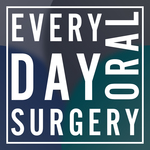How Specialization Can Both Help and Hinder Your Service to Others
Date: June 4, 2025
Have you ever heard the phrase, “Jack of all trades, master of none”? It’s something I’ve often heard applied to general dentists. For specialists, you might say the reverse is true—but with a twist: “Lack of all trades, master of one.”
In today’s world of specialization, a lot of problems get solved very efficiently. One of the great benefits of specialization is deep expertise. But it’s worth asking: What are the downsides?
As a specialist in oral surgery, I’ve noticed a few. One quote that captures a key pitfall of specialization is: “When you’re a hammer, everything looks like a nail.” In other words, when a specialist sees a patient, there’s a natural tendency to treat every issue with the solution they know best. The assumption is that every referral “needs” the specialist’s procedure.
But that’s not always the case.
In truth, a significant percentage of referrals are simply for assessment—to help figure out what the patient actually needs. In oral surgery, for instance, a general dentist may refer a patient with pain even when they’re unsure what’s causing it—or whether surgery is even the right answer.
The flip side is that generalists, who learn a little about a lot of things, can sometimes fall into the trap of “not knowing what they don’t know.” A limited understanding of a specialty can lead someone to believe they know most of what that field entails. This can result in overconfidence—and an underestimation of the risks, complications, or nuances of a particular treatment.
A Real-World Example
I’ve had patients referred to me for tooth extraction, even when the referring dentist can’t identify anything specifically wrong with the tooth. We call this idiopathic odontalgia—tooth pain without a clear cause. In situations like this, providers sometimes default to extraction without fully exploring other possibilities.
Is it the bite (occlusion)?
A hairline crack?
Nighttime clenching or grinding habit causing muscle and jaw pain?
A nerve inflammation issue potentially due to an immunity reaction?
The truth is, stepping outside your specialty to explore these questions takes extra time, effort, and often money. Not all patients have access to specialists outside the referral network or insurance coverage. On top of that, the referring doctor may simply be unaware of alternative diagnoses or treatment options.
Not long ago, I had an oral medicine specialist on the podcast who discussed atypical odontalgia and various non-surgical treatments their field offers. That conversation opened my eyes to a whole new realm of diagnostics and care that could often lead to a non surgical solution of the pain. How fantastic is that?!. It reminded me how important it is to keep learning, to stay curious, and to collaborate across specialties.
The Hammer and the Screw
Let’s return to that hammer metaphor:
Sometimes we’re pounding away at a screw, frustrated it’s not going in. But the problem isn’t the effort—it’s the tool. Recognizing that you’re dealing with a screw and not a nail is the first step. Knowing that there’s such a thing as a screwdriver, and being willing to use it—or refer to someone who does—is what transforms good care into excellent care.
This idea applies far beyond dentistry. A husband who is a trained psychotherapist might try to analyze the cause of his wife’s frustration, when what she really needs is a hug and an outpouring of love. The right tool matters—even when your favorite one is pretty sharp.
Reflection Questions
- In what ways might your specialized skills be blinding you to other possible solutions?
- What is a specific skill set you rely on—and how might that shape the way you approach other people’s problems?
- What could you learn from another field, perspective, or experience that might make you more effective and compassionate?
Action Steps
- Set aside 30 minutes each day to study something related to your field that broadens your perspective or introduces new tools.
- Shadow or speak with other specialists and generalists in your field to better understand the breadth of approaches available.
- Hit the pause button the next time you’re faced with a problem that is irregular. Look for other possible solutions to the problem. Reach out to other types of specialists for help with the solution.
